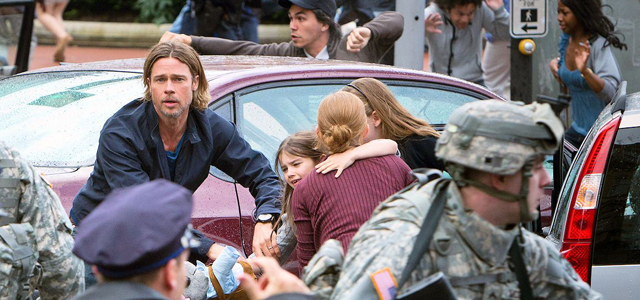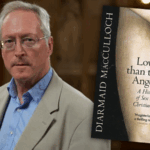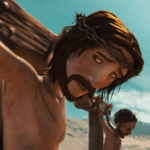(MA) Brad Pitt, Mireille Enos, Fana Mokoena
Max Brooks’ 2006 best-seller subtitled “An Oral History of the Zombie War” is written as a series of post-war interviews with people all over the world discussing how a global pandemic that turned people into zombies quickly got out of the control of governments and left humanity in the minority to fend for itself.
But Stephen Soderbergh already made a thriller about a quickly spreading pandemic in his thriller Contagion in 2011, so Marc Forster has wisely decided to base his film on the Brooks tome’s ideas and used the familiar one-man-saves-the-world template to chilling effect. Granted, this makes the film occasionally feel like a global pandemic travel guide as Pitt’s retired United Nations trouble-shooter Gerry Lane travels the globe in search of a way of finding a chink in the growing undead army, but it is chilling and effective nonetheless.
Faced with gridlock in downtown Philadelphia that represents the havoc the undead are causing all over the world, Lane quickly exits the city with his wife, Karen (Mireille Enos), and two daughters as chaos grips the city. His former boss Thierry (Fana Mokoena) sends a chopper to rescue them from a rooftop and spirit them to the temporary haven of command central aboard an Atlantic Ocean-based vessel.
After spending the first 25 minutes of the film being chased by zombies, this is the first of a couple of welcome respites from the white-knuckle action and set pieces the film serves up audiences over its remaining runtime.
The film glosses over why Gerry has been chosen as the one to save humanity and quickly despatches him to South Korea in search of a cure. After things go awry in South Korea he is driven back to the plane to head for Israel, known to be the only nation to date able to hold back the hordes with the construction of a large wall around Jersusalem.
A subsequent siege of Jerusalem is frightening and chilling and the great set piece of the film. Covered from all perspectives, from the jammed immigration lines to the aerial views revealing the city’s warren of ancient corridors and walls, the convulsive action climaxes with Gerry and a female soldier desperately climbing aboard the last plane out, a ride which itself becomes another visceral action interlude of a fairly high order.
If the first two thirds of the film is filled with seemingly inescapable action sequences, the film’s final third ramps up the tension, albeit in a lonely top-secret medical research facility in Cardiff, Wales.
The sequence is a fairly simple, pared-down well-executed cat-and-mouse game in which Gerry, the female soldier and scientists are forced to sneak through a zombie-occupied building to find the key to stemming the war’s tide. Contrasting what has gone before, there are tense scares and high stakes.
To say the film has some white-knuckle action sequences is an understatement with zombie horde sequences and scares only enhanced by 3D and seamless CGI.
What has come to set the film universe apart from others in the genre is the way, once affected, the zombies move like a horde of crazed insects, swarming after all those in their path. Sequences in Jerusalem as they quickly and fluidly move through the streets en-masse keep the heart pounding as protagonists escape, just barely with their lives.
Surprisingly, for such a high budget film, Brad Pitt is the only star in the film. Gerry’s wife,the U.N. boss and the Israeli soldier, for instance, could easily have been cast with names, but having relatively fresh, non-distracting faces in these roles plays well. Daniella Kertesz as the soldier, in particular, gets a big chance with her part and makes the most of it.
Makeup effects are frightening and effective, particularly in the Cardiff set sequences.
Reminiscent of Children of Men, the film resists the triumphant ending opting for a more subdued approach, which follows the books theory about a problem that will take some years and generations to eradicate.
It seems that films about the undead are becoming more popular. With the ground-breaking television series “The Walking Dead” enjoying critical acclaim. What is it about the undead that fascinates us? Perhaps it’s because films about the undead naturally make us think about what makes us human. Our beating heart, soul and resillience make us who we are, albiet created in God’s image.
What do we make of a human without a heart, a soul, empathy or the ability to feel? It is a monster we must escape from, into the arms of a loving God.
Adrian Drayton












